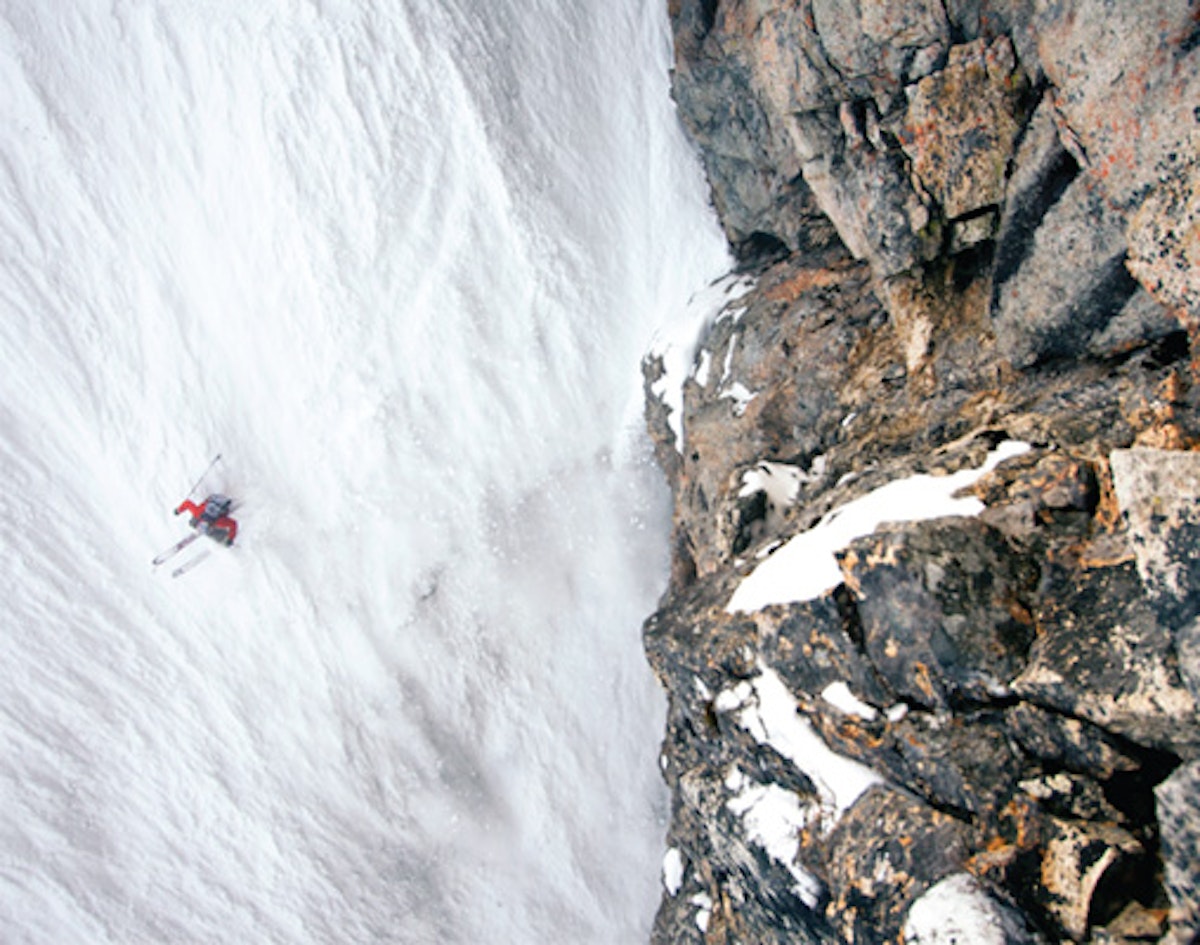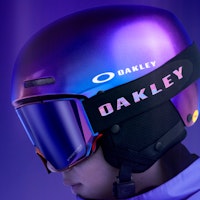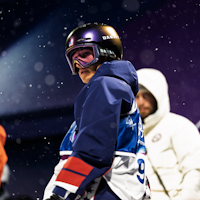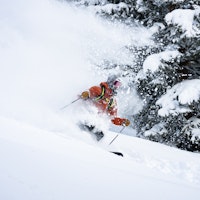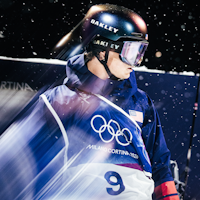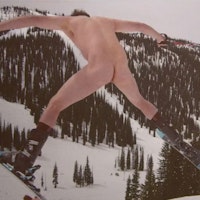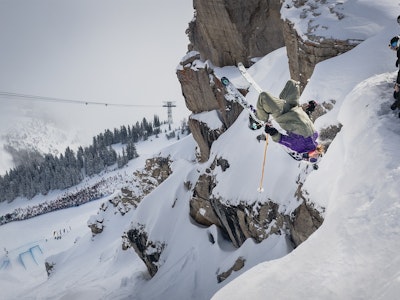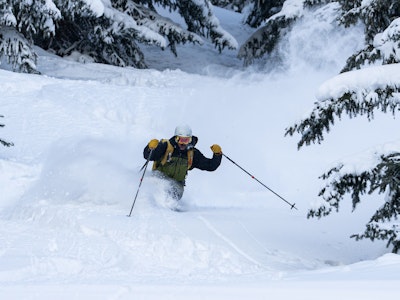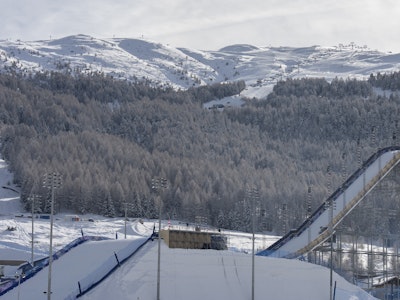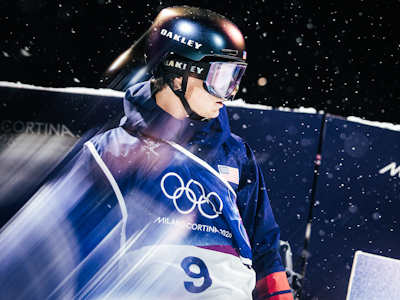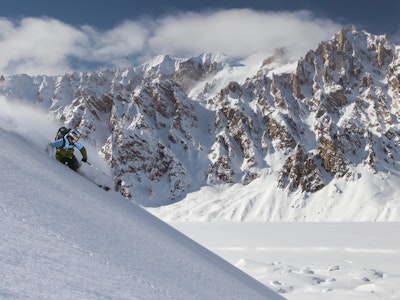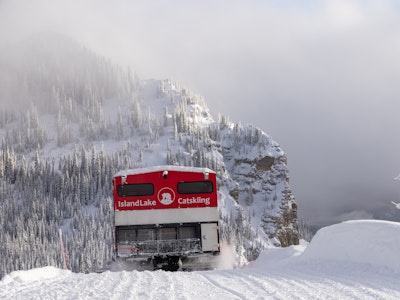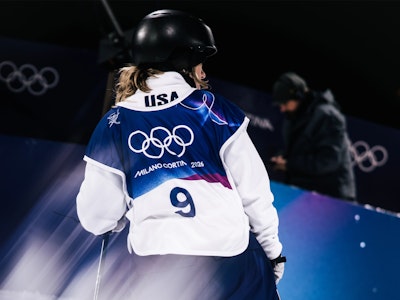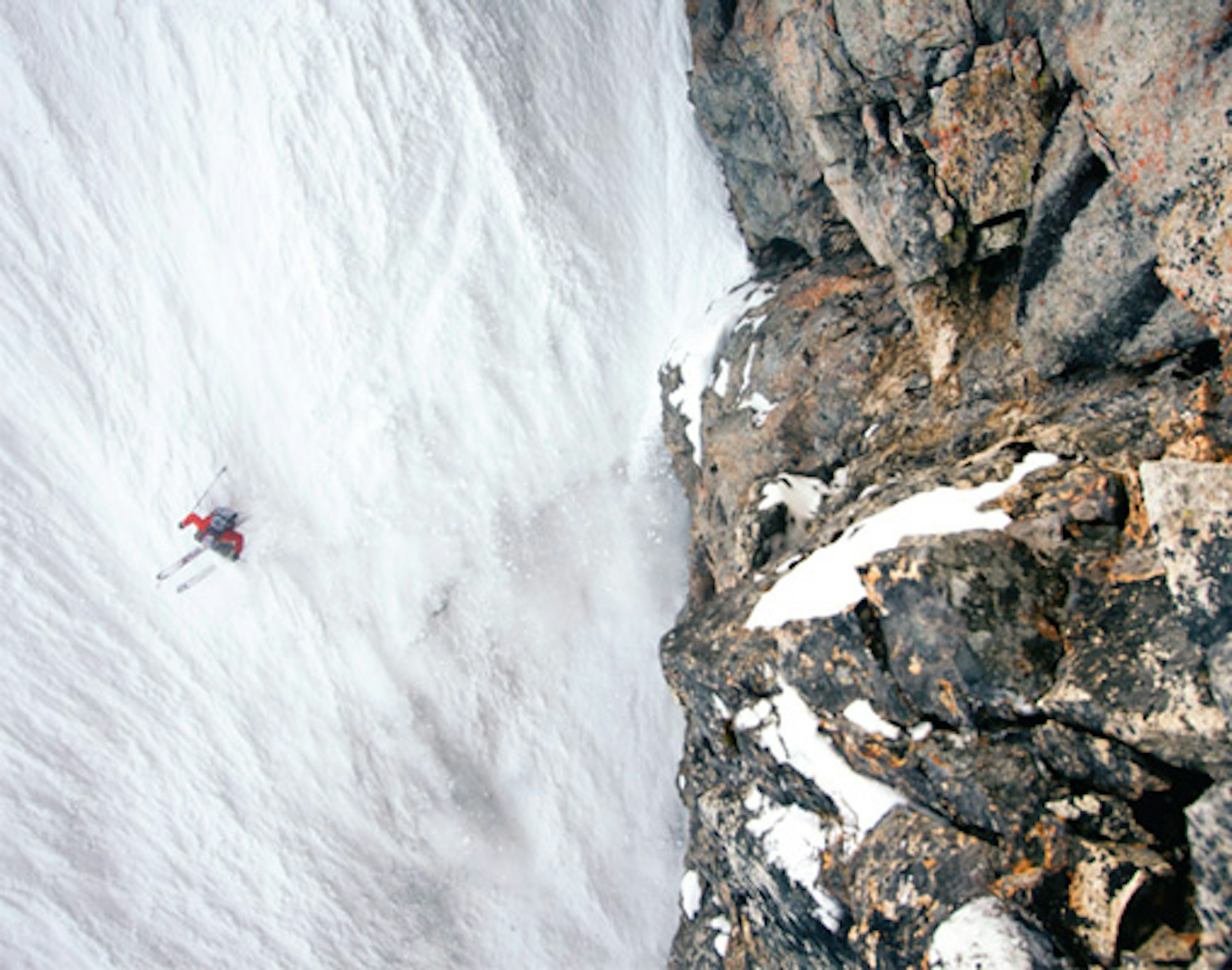Interview by Megan Michelson
Drew Tabke has been competing in big-mountain contests for the last eight years. In 2011, he won the overall title on the Freeskiing World Tour and last winter, he placed second on the Freeride World Tour. When he’s not competing, Tabke spends about 80 percent of his time in the backcountry, notching first ski descents in Washington’s North Cascades or in Chile’s Andes, where he spends three months each summer. Tabke, 28, spoke to us about his thoughts on the state of the backcountry while eating a burger at a pub in Seattle.
What draws you to the backcountry? I don’t like people telling me what to do. In ski areas, you have rules, ski patrol, and so many things that decide what you can and cannot do. In the backcountry, the best experience for me is having an idea of where I want to go and not using a guidebook and not getting too much information and having an authentic adventure. That’s my ideal.
Are there actually places left that haven’t been explored? Sure, in Washington, which is why I moved here from Utah. In Utah, it’s so hard to get somewhere where you can’t see another skin track. But in Washington, you may have a difficult approach, but then you get to a place where you have to figure out where to go, and you see no signs of other humans.
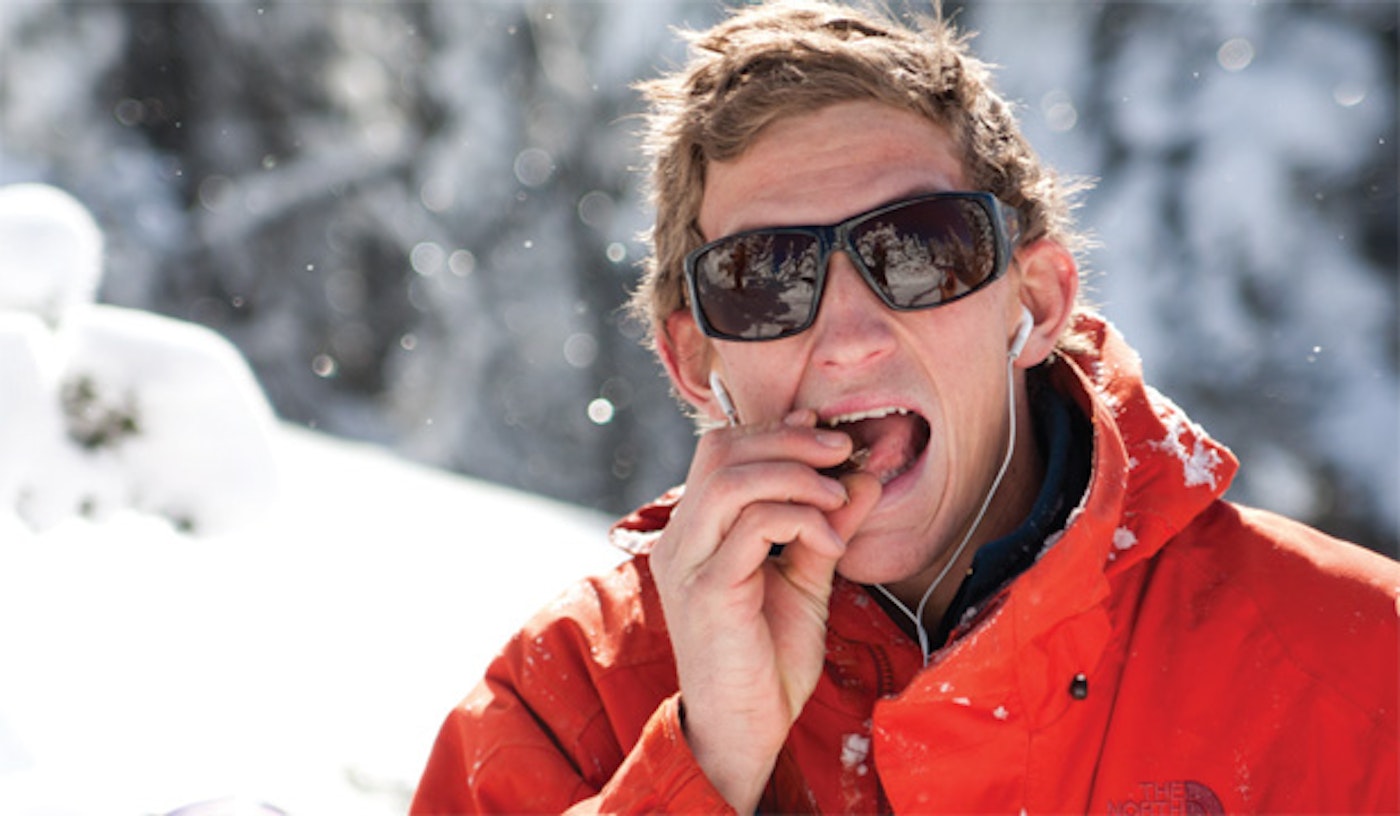
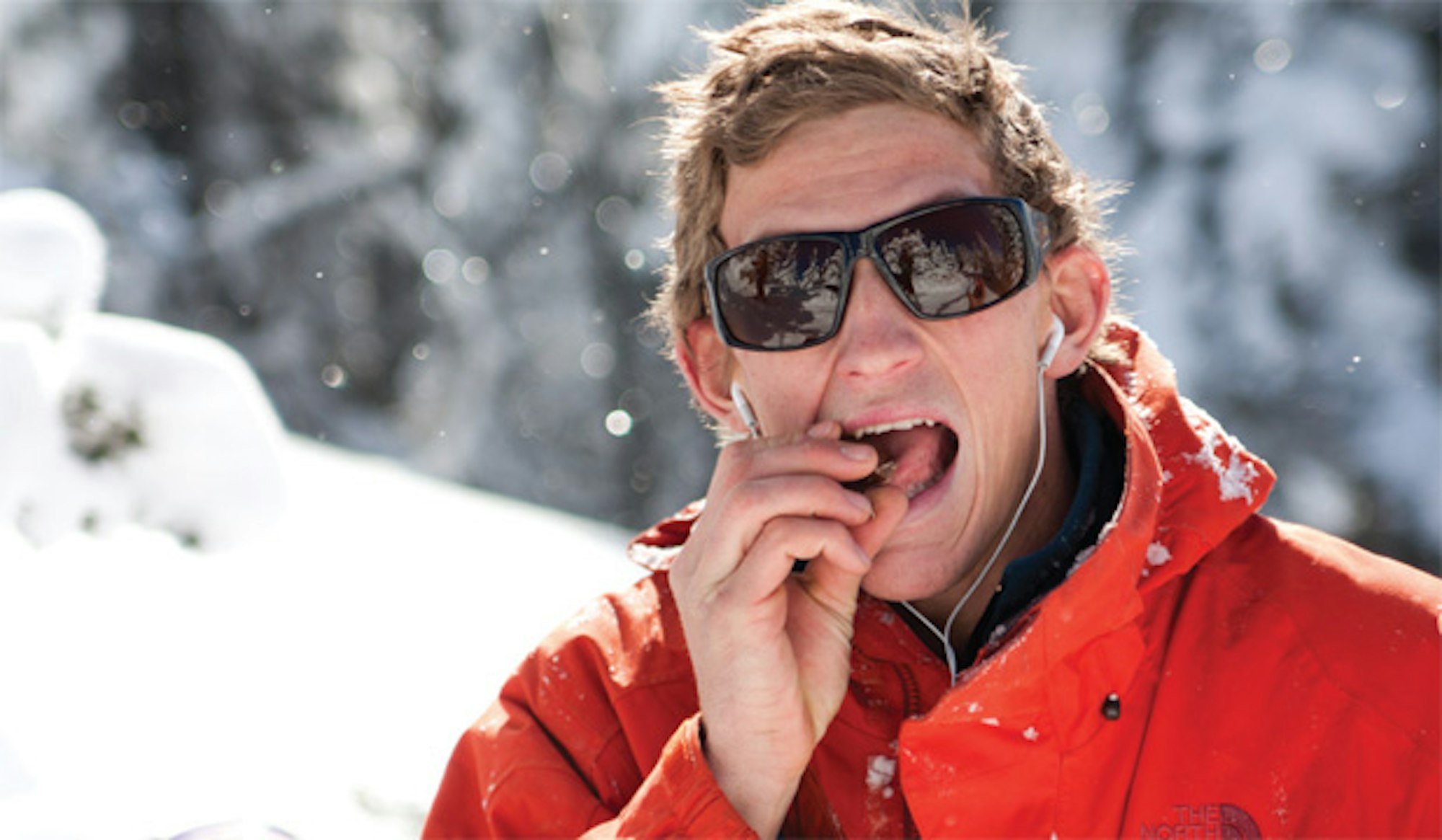
Photos by Bissel Hazen in Alpental, WA
Do you think about dying or getting hurt in the backcountry? The risk in backcountry skiing is on my mind all the time, but I believe that too much of the conversation is about that stuff. If people are talking about how dangerous it is and all of the accidents, I think that almost accomplishes the opposite. Instead of keeping people safer, if the discourse is about danger, it pushes people into it.
I totally disagree. Take shovels, beacons and probes. People say you need them because it’s so dangerous out there, and there might be an avalanche. So people are like, “Okay, let’s get that stuff.” But I think people should be able to ski without shovels, beacons and probes because they should be making decisions about the environment and terrain they’re in as if they don’t have that equipment. If you don’t have that gear, you’re not going to ski an avalanche path or do any of these things that technology and the scene push people to do.
You’re not actually suggesting people ski without beacons? All the momentum toward backcountry safety equipment, while great, it’s a double-edged sword. Airbags are great, but people are going to make bad decisions because of the technology. If you don’t feel comfortable going into the backcountry without a beacon and making decisions that will keep you as safe as possible, then you shouldn’t go out there without a guide.
So you won’t wear an airbag pack? I do have one, and I will decide when the appropriate time to wear an airbag is. I just don’t see the benefits from the technology lining up with the risk that you’re taking.
If someone offered me a floatation device in case the airplane crashes, I would grab it and hope that I don’t need it. You’re saying you wouldn’t take the life vest? I’d refuse the life preserver, stand up and scream, “But we’re over Texas, and there’s no water in sight! We’re all going to die!” But seriously, I’m not saying that this gear is useless. In certain situations, it can save lives. But people think because they have their level one avalanche training and their gear, they’re safe. But that’s not enough. No gear can be a substitute for the good decision making that keeps you from needing your rescue gear in the first place.
So if not risks and danger, what should the conversation be about? The final chapter in all avalanche books is psychology. It’s more decision making and goals. The conversation among the group shouldn’t be, “How much risk can we take and get away with?” It should be, “How can we be 100-percent safe and still have fun?”
But you’re not a mellow, low-angle skier. You’re out skiing gnarly stuff. You’re right. I take a lot of risks.
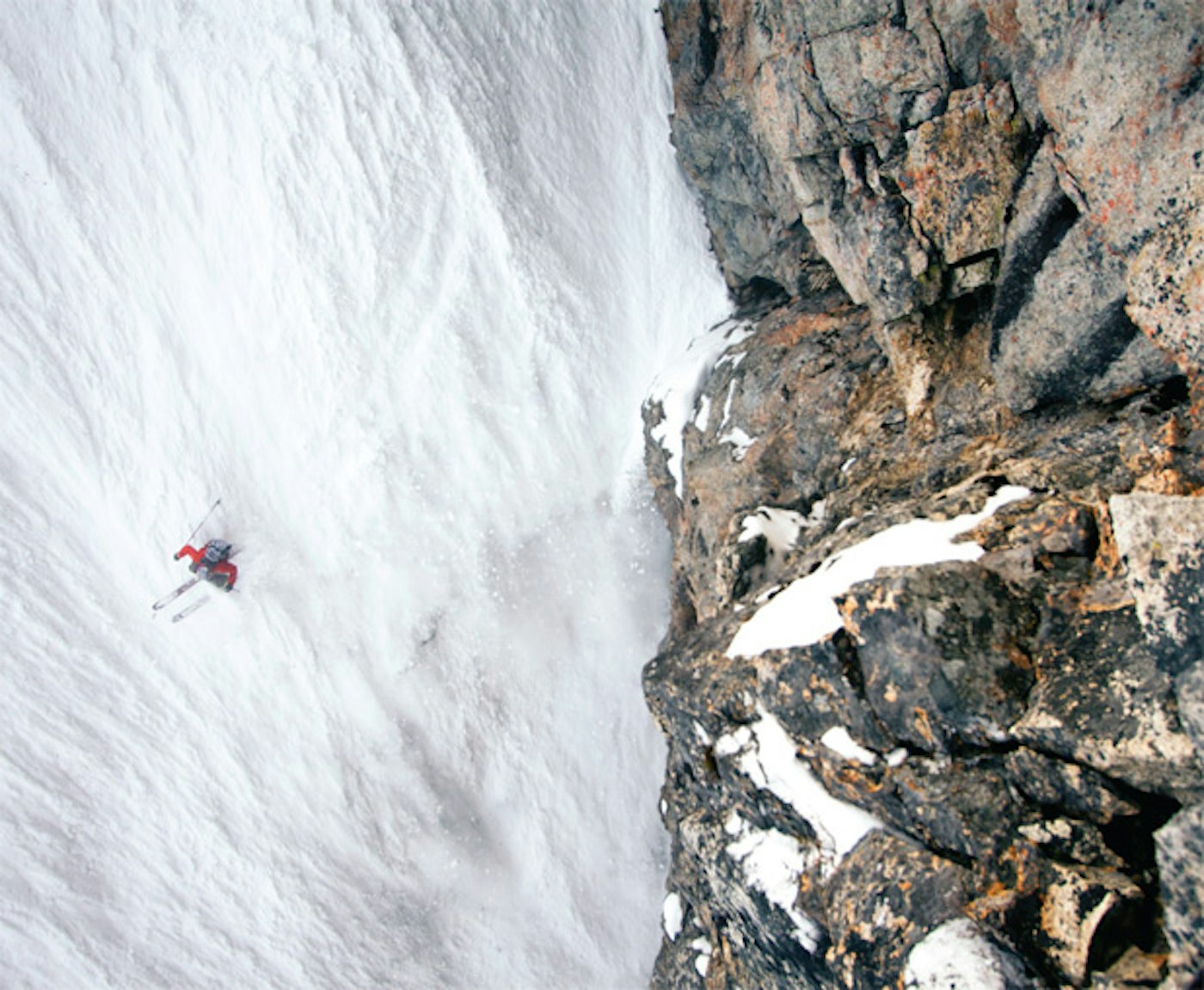
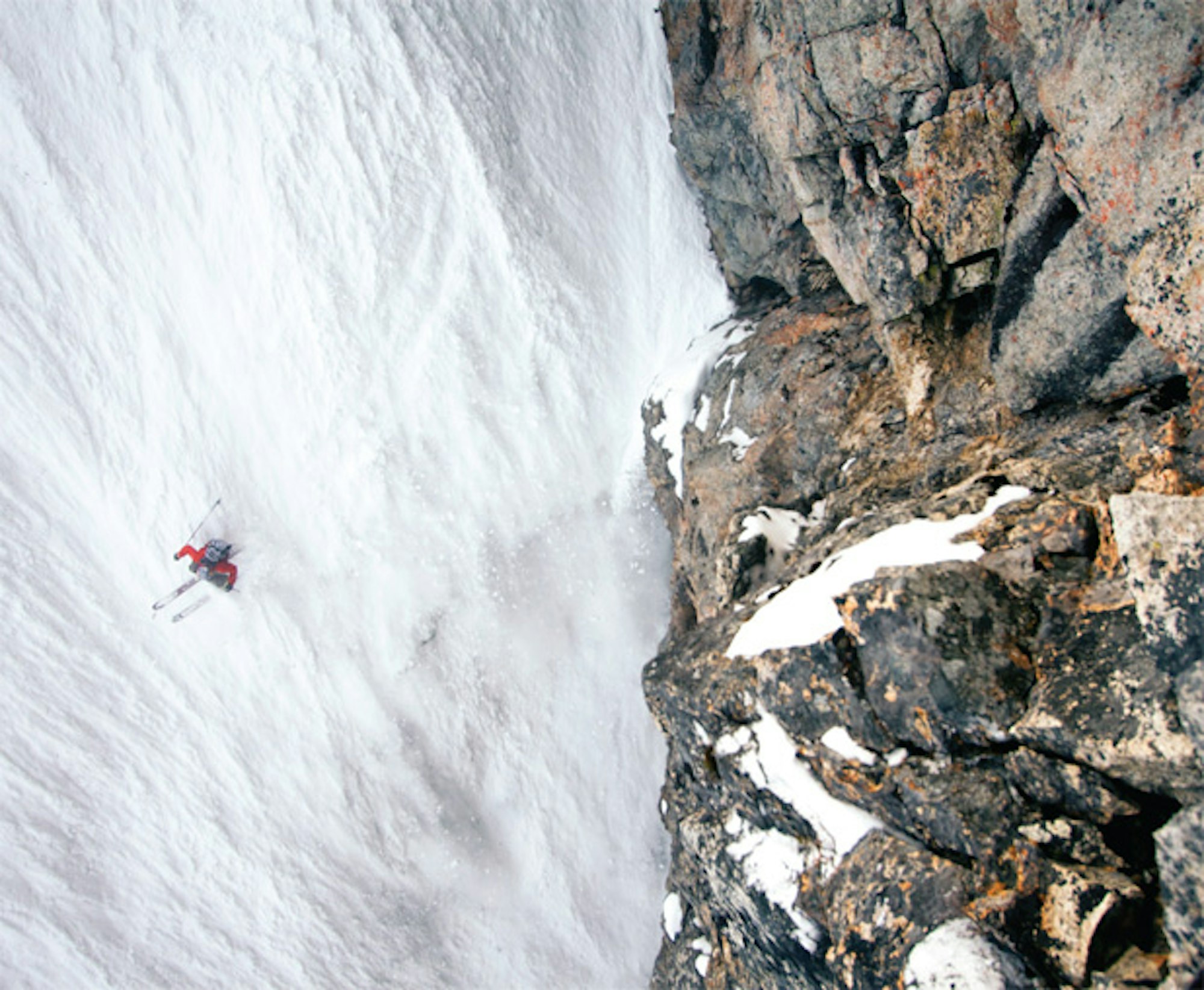
So you’re a hypocrite? I guess so. To be honest, I rarely ski powder in the backcountry. People say you have to go and ski powder—that’s the sickest. But maybe that’s the hype that’s killing people. I think back on the last five years, and I’m almost always avoid- ing deep powder. I’m going out just to be in the mountains and find a nice route through some peaks or a cool traverse or ridge climb. I think that part is lost on a lot of people. My ultimate goal is still to ski powder, but only after all of these other variables and objective hazards come together.
The headline of this story is going to be: Drew Tabke doesn’t want you to wear a beacon. Are you still recording? What else can I say that is going to be controversial?
Yes, I’m still recording. If I were reading this, I might think you are a suicidal idiot, and that you’re saying, “If I mess up, I’m going to die. There’s no chance of survival.” I bet saying, “If I mess up, I’m going to die,” is statistically more accurate than the idea a lot of people have about backcountry hazards, which might go something like, “If I mess up, I’ll be buried under three feet of snow for a few minutes before my friends dig me out.” That’s the story that the ski industry has been telling in the last few years, and it’s total crap. If you mess up, you might not die. That’s the true story.

